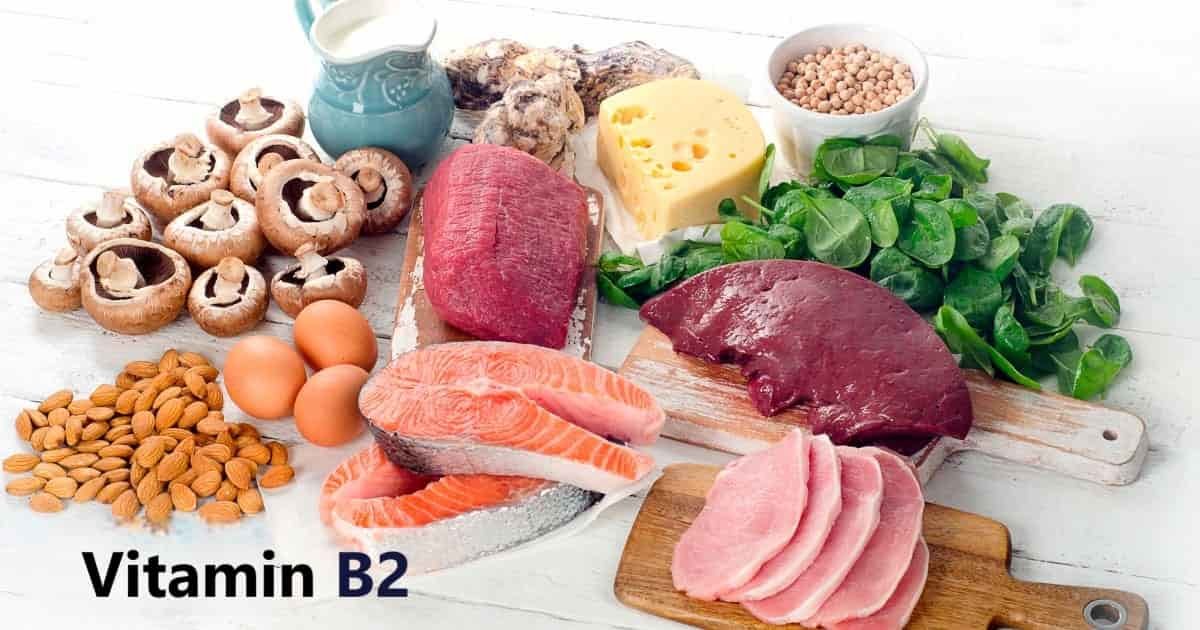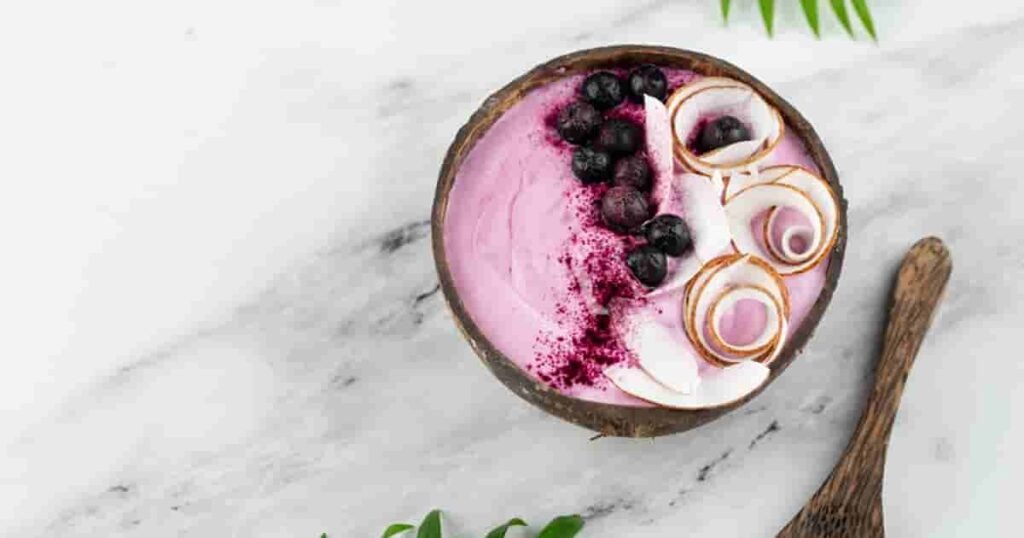Riboflavin, also known as Vitamin B2, is a water-soluble vitamin that plays a crucial role in maintaining overall health. It is involved in various bodily functions, particularly in energy production, cellular function, and the metabolism of fats, drugs, and steroids. Here’s an exploration of the numerous benefits of riboflavin:
1. Energy Production
- Role in Metabolism: Riboflavin is essential for the conversion of carbohydrates, fats, and proteins into energy. It acts as a coenzyme (FAD and FMN) in key metabolic processes, including the citric acid cycle (Krebs cycle) and the electron transport chain, where it helps produce adenosine triphosphate (ATP), the body’s main energy currency.
2. Antioxidant Properties
- Cellular Protection: Riboflavin has antioxidant properties that help combat oxidative stress by neutralizing free radicals. This protective effect supports cellular health and may reduce the risk of chronic diseases associated with free radical damage, such as cancer and cardiovascular disease.
3. Skin and Eye Health
- Maintaining Healthy Skin: Riboflavin plays a vital role in maintaining healthy skin. It aids in the repair and growth of skin cells, promoting overall skin health and potentially preventing skin disorders.
- Vision Support: Riboflavin is important for eye health, as it helps maintain the integrity of the cornea and may reduce the risk of cataracts. It also contributes to the production of glutathione, a powerful antioxidant found in the lens of the eye that protects against oxidative damage.
4. Nervous System Function
- Supporting Neurological Health: Riboflavin is crucial for the production of myelin, the protective sheath surrounding nerve fibers. This support helps ensure proper nerve function and communication throughout the nervous system, which is essential for cognitive function and overall neurological health.
5. Red Blood Cell Production
- Hemoglobin Synthesis: Riboflavin is involved in the production of red blood cells, which are crucial for transporting oxygen throughout the body. Adequate riboflavin levels help prevent anemia, ensuring that the body’s tissues receive sufficient oxygen.
6. Hormone Regulation
- Supporting Hormonal Balance: Riboflavin plays a role in the synthesis of certain hormones, including adrenal hormones that help the body respond to stress. This regulatory function is vital for maintaining overall hormonal balance.
7. Reduction of Migraines
- Migraine Prevention: Some research suggests that riboflavin supplementation may help reduce the frequency and severity of migraines in susceptible individuals. Riboflavin’s role in energy production and mitochondrial function is thought to be beneficial in this context.
List of Foods That Contain Vitamin Riboflavin
Riboflavin can be found in a variety of foods, particularly in dairy products, eggs, lean meats, and green vegetables. Here’s a list of foods rich in riboflavin:
1. Dairy Products
- Milk
- Yogurt
- Cheese (especially Swiss and ricotta)
2. Eggs
- Eggs (particularly the yolk)
3. Meats
- Pork (especially lean cuts)
- Beef
- Liver (particularly beef liver, which is very high in riboflavin)
4. Nuts and Seeds
- Almonds
- Sunflower Seeds
5. Green Vegetables
- Spinach
- Kale
- Broccoli
- Asparagus
6. Whole Grains and Cereals
- Whole Wheat Products (bread, pasta)
- Fortified Breakfast Cereals
7. Fruits
- Avocado
- Mushrooms (particularly cremini and portobello)
8. Legumes
- Lentils
- Black Beans
- Chickpeas
FAQs about Vitamin Riboflavin
1. What is the recommended daily intake of riboflavin?
- The recommended dietary allowance (RDA) for riboflavin varies by age and gender:
- Men: 1.3 mg
- Women: 1.1 mg
- Pregnant Women: 1.4 mg
- Lactating Women: 1.6 mg
2. What are the symptoms of riboflavin deficiency?
- Symptoms of riboflavin deficiency can include sore throat, redness and swelling of the lining of the mouth and tongue, cracks or sores on the outsides of the lips (cheilosis) and at the corners of the mouth (angular stomatitis), and a decrease in red blood cell count (anemia).
3. What foods are the best sources of riboflavin?
- The best sources of riboflavin include dairy products, lean meats (especially pork and organ meats), eggs, green leafy vegetables, nuts, and fortified cereals.
4. Is riboflavin supplementation necessary?
- For most people with a balanced diet, riboflavin supplementation is not necessary. However, individuals with certain health conditions, dietary restrictions (like vegans), or increased needs (e.g., pregnant women) may benefit from supplements.
5. Can you have too much riboflavin?
- Riboflavin has low toxicity. Excess amounts are generally excreted through urine, making it unlikely to cause adverse effects. However, it’s still best to meet your needs through food and consult a healthcare provider before taking high-doses of supplements.
6. How can cooking affect riboflavin content in foods?
- Riboflavin is sensitive to light and heat. While cooking does not significantly degrade riboflavin, it can be lost in food preparation processes, particularly boiling. Minimizing cooking times and using methods such as steaming can help preserve its content in foods.
7. Are there interactions between riboflavin and medications?
- Riboflavin does not typically have harmful interactions with medications. However, certain medications that affect absorption or metabolism might alter vitamin levels; it’s a good practice to consult healthcare professionals regarding potential interactions.
8. Does riboflavin have any role in skin health?
- Yes, riboflavin plays a significant role in maintaining healthy skin. It aids in the healing of skin lesions and may help manage conditions such as acne due to its ability to support cellular repair and growth.


